Council Directive 2010/45/EU of 13 July 2010 establishes several ways in which taxable persons can ensure the authenticity of the origin, the integrity of the content and the legibility of invoices from the systems they use, which is basically set out in Article 233:
Article 233
1. The authenticity of the origin, the integrity of the contents and the legibility of an invoice, whether in paper or electronic form, shall be guaranteed from the time of issue until the end of the invoice retention period.
Each taxable person shall determine how to ensure the authenticity of the origin, the integrity of the content and the legibility of invoices. This may be done by means of management controls which create a reliable audit trail between the invoice and the supply of goods or services.
Authenticity of origin” means the assurance of the identity of the supplier of the goods or of the provider of the services or of the issuer of the invoice.
Completeness of content” means that the content required under the provisions of this Directive has not been changed.
2. In addition to the types of management control referred to in paragraph 1, other examples of technologies that guarantee the authenticity of the origin and integrity of the content of an electronic invoice are:
(a) advanced electronic signature within the meaning of Article 2(2) of Directive 1999/93/EC of the European Parliament and of the Council of 13 December 1999 on a Community framework for electronic signatures (*), based on a qualified certificate and created by a secure-signature-creation device within the meaning of Article 2(6) and (10) of Directive 1999/93/EC;
(b) electronic data interchange (EDI) as defined in Article 2 of Annex 1 to Commission Recommendation 94/820/EC of 19 October 1994 on the legal aspects of electronic data interchange (**), if the interchange agreement provides for the use of procedures ensuring the authenticity of the origin and integrity of the data.
The transposition of the Directive gave rise to Royal Decree 1619/2012 of 30 November (BOE of 1 December), which establishes the requirements in Article 8:
1. Invoices may be issued by any means, on paper or in electronic form, which enables the party responsible for issuing them to guarantee the authenticity of their origin, the integrity of their content and their legibility, from the date of issue and throughout the storage period.
2. The authenticity of the origin of the invoice, whether paper or electronic, shall guarantee the identity of the party responsible for issuing it and of the issuer of the invoice.
The integrity of the content of the invoice, whether paper or electronic, will guarantee that it has not been modified.
3. The authenticity of the origin and the integrity of the content of the invoice, whether paper or electronic, may be guaranteed by any legally admissible means of proof.
In particular, the authenticity of the origin and the integrity of the content of the invoice may be guaranteed by the usual management controls of the taxable person’s business or professional activity.
These management controls should provide a reliable audit trail that establishes the necessary connection between the invoice and the delivery of goods or services that it documents.
Royal Decree 1619/2012, completes the adaptation of article 233 of the directive by mentioning in article 10 the means of guaranteeing authenticity and integrity indicated in 233, in terms that give continuity to the provisions of article 18 of the previous invoicing regulation, approved by Royal Decree 1496/2003, of 28 November:
Article 10. Authenticity and integrity of the electronic invoice.
1. The authenticity of the origin and integrity of the content of the electronic invoice may be guaranteed by any of the means set out in Article 8.
In particular, the authenticity of the origin and the integrity of the content of the electronic invoice shall be guaranteed by one of the following means:
a) by means of an advanced electronic signature within the meaning of Article 2(2) of Directive 1999/93/EC of the European Parliament and of the Council of 13 December 1999 on a Community framework for electronic signatures, based either on a qualified certificate created by a secure-signature-creation device in accordance with Article 2(6) and (10) of the said Directive or on a qualified certificate in accordance with Article 2(10) of the said Directive.
(b) by electronic data interchange (EDI) as defined in Article 2 of Annex I to Commission Recommendation 94/820/EC of 19 October 1994 on the legal aspects of electronic data interchange, where the agreement on such interchange provides for the use of procedures guaranteeing the authenticity of the origin and integrity of the data.
c) By other means that the interested parties have notified to the State Tax Administration Agency prior to their use and which have been validated by the same.
2. In the case of batches comprising several electronic invoices sent simultaneously to the same recipient, the details common to the various invoices may be mentioned only once, provided that all the information is accessible for each invoice.
EADTrust has defined an audit service whose report can support the method adopted by a company to guarantee the authenticity of the origin, the integrity of the content and the legibility of the invoices it sends and receives. This improves the legal security of the entity, which is not left at the mercy of what a tax inspector may decide “a posteriori” if he analyses the system adopted and in his opinion it does not meet the requirements of the Directive and the Royal Decree. To request this service, please call 917160555.

